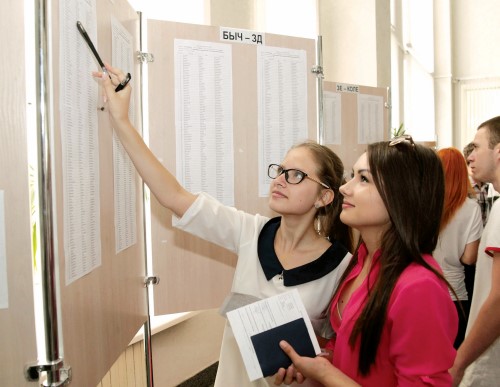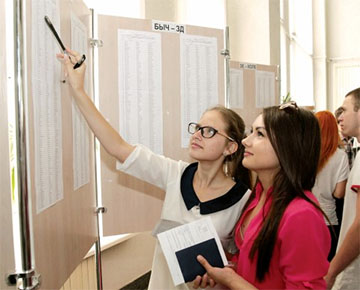
Level of school leavers’ knowledge annually rising
It would be a mistake to think that most of those boasting the highest grades have studied in Minsk. Only 73 are from the capital, against 105 (with 100 points) from district centres. In fact, 23 school-leavers of the previous years have this year been among those earning 100 points.
These results have influenced the grades now needed for popular specialties, with 378 points required by the Belarusian State University’s International Relations Department (against last year’s 364) and 305 for the Maxim Tank Belarusian State Pedagogical University’s ‘Fine Arts and Computer Graphics’ course (288 in 2014).
School leavers are also demonstrating increased interest in pedagogical specialties, with all places filled for the coming academic year. Grades speak for themselves, since at least 315 points are now required for a place on the Mozyr Shamyakin Pedagogical University’s ‘Elementary Education’ course (last year, only 132 points were required). As a result, 147 state funded places remained vacant for full time study last year and 82 were vacant for evening courses. This year, just under 200 places are vacant at special educational establishments (less than 1 percent of enrolment plan).
Applications are still being accepted at 154 professional technical colleges until September 15th, with vacancies available in agricultural and light industry specialties, as well as machine building and metallurgy. Mr. Zhuravkov notes that all these spheres require employees and are receiving investment and modernisation, as well as opportunities for continuing professional training, to reflect the ever-changing market.
Ms. Kochanova, who heads the state commission for higher education entrance, stresses that organisation is at the highest level, without corruption or bias. However, some higher educational establishments (including the Belarusian State Economic University) have been admonished for changing enrolment at the last minute, bringing anxiety to students.
She also notes that women on maternity leave or taking care of disabled children should be allowed to study remotely; a corresponding proposal is in the pipeline.
Speaking of plans to introduce four tests, Mr. Zhuravkov notes that these are only proposals, for realisation no earlier than 2017.
By Olga Pasiyak
Photo: BELTA
Photo: BELTA











